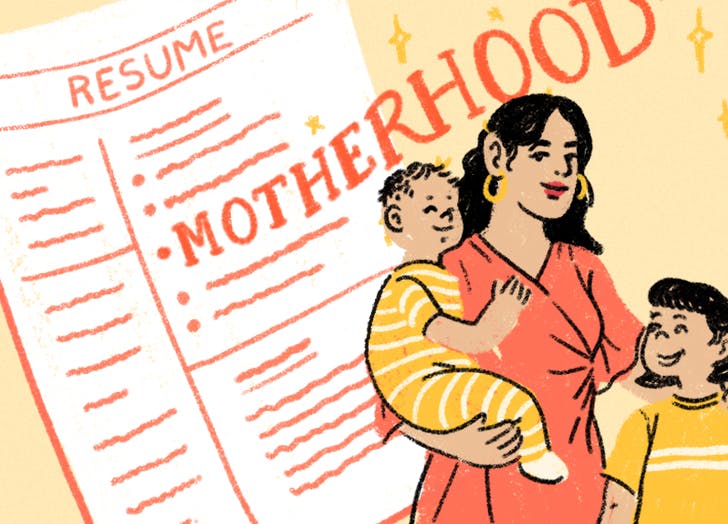Revolutionary Idea: Put ‘Motherhood’ on Your Professional Resumé
- By Development
- December 7, 2021

1. Update Your LinkedIn Profile
Some women choose to expand their professional headline to include the word “mother.” (For example: a graphic designer who took four years off when her kids were little, and now spends a third of her day running her household might list her career as “Freelance graphic designer and mother.”) Others make their job as a parent a stand-alone item in the “experience” section on LinkedIn. But no matter how you incorporate motherhood into your resumé, the goal is to add depth to your overall experience, says Libin. “Quite often, mom is chief everything officer at her house. [Adding motherhood to the resumé] is about highlighting that fact, and relying on business language to do it.”
2. Bullet Out (or Describe) the Skills You’ve Honed in this Position
Did you learn multi-tasking, listening and policy while advocating for a child with special needs? Did you master Quickbooks and Excel while serving as PTA treasurer? Put it on your resumé! On LinkedIn, we spotted a Washington-based consultant whose bio mentions that she’s a mom of three, a.k.a. the “next generation of rebels,” as well as a sales director in upstate New York, who brags about vocalizing motivations and challenges learned as a parent as a way to encourage her kids to pursue their own talents. (A smart way to demonstrate how she might manage her own team.) We also saw a Seattle VP working in IT who spelled out the fact that being a mom has taught her to be patient, empathetic, flexible, big-picture focused and calm when dealing with adversity.
3. Stop Hiding or Apologizing for “Gaps” in Your Career
Whether you experienced job loss as a result of the pandemic or simply decided to take a few years off, mentioning motherhood can be a strategic way to legitimize gaps in your career, says Libin. “You’re actually working,” she says. “You’re doing something that is so incredibly hard. You’re constantly testing, evaluating and pivoting based on learning. Of course, it depends on the job you’re interviewing for, but motherhood could end up being the differentiator that pushes you ahead in the interview process.” (This is especially true if you know the company values women and parents in leadership positions.)
4. Prepare for Varied Reactions
“We’re still living in a culture where there might be inherent unconscious bias,” says Libin. “But maybe, at the end of the day, that’s not the type of employer you want to end up working for.” Bottom line: you’re conducting an interview too, and if your prospective job can’t see the value in running a family, that’s something to consider.
Subscribe
Sign up with your email
address to receive news and
updates.
